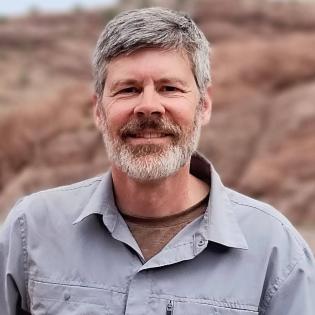What You'll Learn
Through Calvin's geology major (BA/BS), you will learn about the formation, history and structure of the Earth, and apply that knowledge to practical problems as committed Christians.
Why Study Geology?
- Strong demand for new geologists: The current workforce is aging and starting to retire, causing a growing demand in this field. Because of this salaries are generally high, and future job security may also be high.
- Active, fulfilling lifestyle: Geology gives the opportunity to do much more than sit behind a desk. Many positions include outdoor fieldwork and sampling.
- Get to know the world: Geology will help you develop a greater understanding and appreciation of the world around you.
- Provide for society: Our world depends on many natural resources, the locating and extraction of which geologists often play a key role. Progress in these areas is an important duty of the geologist. Geologists also work to protect people from natural disasters and hazards, including the global climate crisis.
- Loading...
- Loading...
- Loading...
Faculty
Careers in Geology
As a geologist, consider career options in the petroleum industry, mining industry, geoscience consulting, or federal, state, and local government.
Practical application of the principles of geology in the solving of environmental problems.
- Managing geological resources
- Mitigating effects of natural hazards
- Managing industrial waste
Dealing with the distribution and movement of groundwater in the soil and rocks.
- Managing water resources
- Searching for clean water aquifers
- Mitigating water pollution events
Engaged in the search for hydrocarbon fuels. The study of origin, occurrence, movement, accumulation, and exploration of hydrocarbons.
- Source rock analysis
- Basin analysis
- Exploration
- Appraisal
- Production
Using the tools and principles of chemistry to explain the mechanisms behind major geological systems.
- Isotope geochemistry
- Cosmochemistry
- Biogeochemistry
- Organic geochemistry
- Aqueous geochemistry
- Environmental geochemistry
- Photogeochemistry
Studying eruptive activity and formation of volcanoes.
- Prediction of eruptions
- Seismology
- Remote sensing
Responsible for providing an enlightening experience to the visitors of city, state, or nationally designated parks.
- Preparing information for exhibits on natural, social, and cultural history
- Planning and conducting group talks on the geological, social, and cultural history of the park
- Promoting conservation education
- Preparing audiovisual materials, including photographs, color slides, and other illustrative materials
- Repairing and updating materials for scientific and historic publications
- Explaining rules and regulations to visitors
Teach new generations of geologists while studying the topic you are passionate about.
- Instructing
- Research









